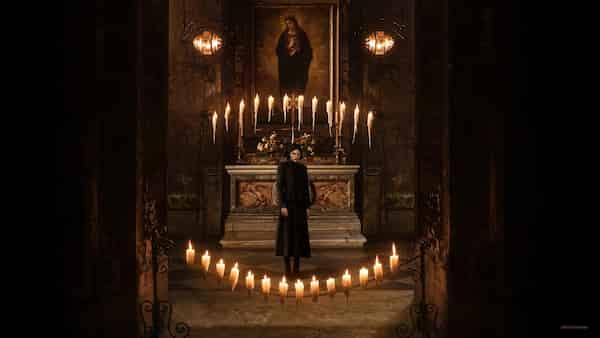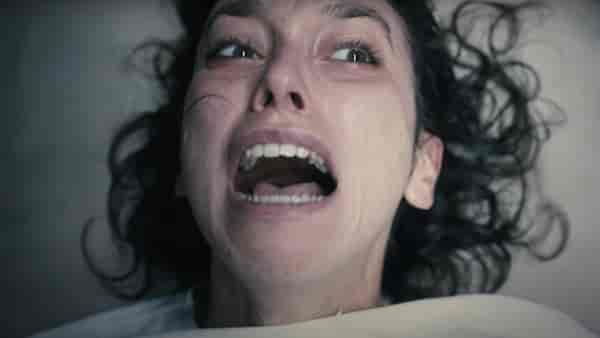The First Omen: When Franchise Loyalty Scrambles Standalone Horror
Arkasha Stevenson's film feels too shackled by the Omen legacy to double up as new-age commentary, writes Rahul Desai

Last Updated: 12.22 PM, May 30, 2024
This column was originally published as part of our newsletter The Daily Show on May 30, 2024. Subscribe here. (We're awesome about not spamming your inbox!)
***
THE FIRST OMEN stars Nell Tiger Free as Margaret, a young American nun who arrives in Rome to work at an orphanage. If you’ve watched half a horror movie in your life, you know how this goes. Naturally, this orphanage gets weird. Naturally, it hides unnatural secrets. Apart from being in perpetual increase-the-brightness mode, the gory set pieces involve the self-immolation and hanging of a psychotic nun, a twisted abortion sequence in a secret chamber, a blurry impregnation ritual, the mistreatment of a female orphan, a couple of public impalings, and so on. It is the early 1970s, so for fans of the ‘first’ Omen (1976), it’s immediately clear that this film is a prequel featuring the origin story of son of Satan — Damien — himself (or should we say ‘itself’?). Margaret’s experiences and the plot become one of those Midwest-Bible-fanatic conspiracy theories masquerading as a Hollywood body horror movie.

You can see what director Arkasha Stevenson is attempting to do. In a world where right-wing ruthlessness is taking all sorts of shapes and forms, she has refashioned this concept into a franchise vehicle about radical institutions spawning evil themselves to defeat secularism and turn people back to the church. They hope to (literally) create the devil to stay relevant themselves in the face of left-wing protests and Western liberalisation. It’s a decent idea. Margaret slowly uncovers this sinister conspiracy at the orphanage and realises that all the girls marked with three sixes are being viewed as vessels to birth the Antichrist. But the treatment lets down the metaphors.

The film feels too shackled by the Omen legacy to double up as new-age commentary. The scale, exposition and narrative tropes are too slight — of course an all-knowing Father randomly finds Margaret and spells out the entire backstory; of course another seemingly good character in the church turns out to be the chief conspirator; of course the creepy orphan is a red herring. The twist is fine, but the manner of revelation itself lacks a sense of timing and occasion. The climax lacks a sense of place. The performances and body acting are adequate at best, but nowhere close to the summits of horror films like Hereditary. The casting of a known face like Bill Nighy is a bit of a giveaway, especially in terms of a character that appears to just exist — until he doesn’t. The film is about fear, but the design itself doesn’t instil that kind of fear: for its viewers as well as its central character, who at times looks like she’s in more of a detective drama than, well, an Omen movie.

Interestingly, The First Omen follows Immaculate (starring Sydney Sweeney) as the second film this year to be centred on a nun and the birth of an Antichrist. There’s something inherently self-contradictory about this genre. Such movies indict modern anti-abortion laws, the stigma of premarital sex, inbreeding and religion’s erasure of female bodily autonomy — but through the vaguely sexploitative story of a woman and her fading physical agency. Things start to go wrong for Margaret the moment she goes clubbing and meets a guy — a reflection of the ultra-conservative Roman Catholic stance on love and abstinence. But her hysteria and increasingly bleak fate ends up validating that stance in its pursuit of critiquing it.

At times, the film sees her the same way this church sees some of their nuns as soldiers who must sacrifice their bodies at the altar of organised faith. It’s a thin line. The way the camera moves. The style of a flashback. The choice of music in a dark space. The decision to turn Margaret into a victim rather than a hero. The blinding focus on the right-wing conspiracy at the cost of any wider context (a protest or two do not an era make). Basically, The First Omen had a chance to succeed both as an expressive standalone film and a solid prelude to a famous franchise. But it blows the shot at one in service of the other. I like that I know where Omen and the terrifying Damien — who ruined my childhood — came from. But I don’t like the fact that the body in body horror is so pronounced. I don’t like the fact that the story tiptoes around its symbolism to speak to the atrocities of today. Given the state of politics and religion and genocides these days, the word ‘body’ itself implies horror. Showing is not always telling; sometimes it can be retelling and adapting. It’s the first Amen — but not the last one.
The views expressed in this column are those of the author and do not necessarily reflect the official policy or position of OTTplay. The author is solely responsible for any claims arising out of the content of this column.

 Premium
Premium